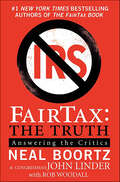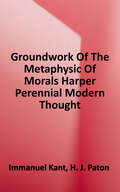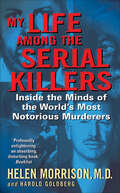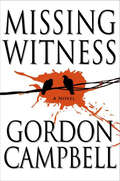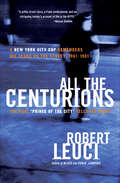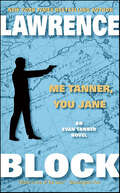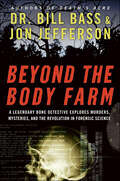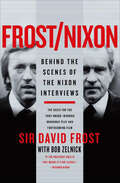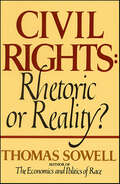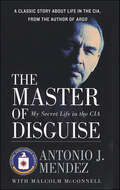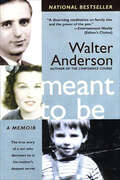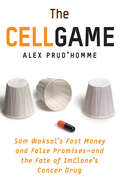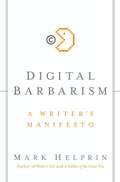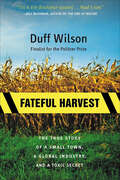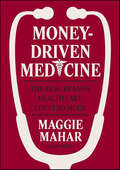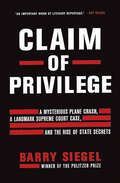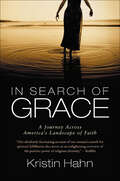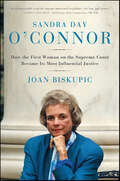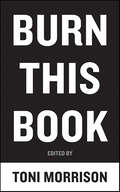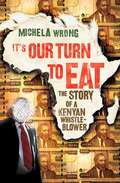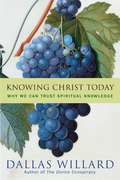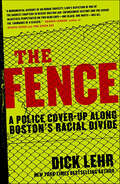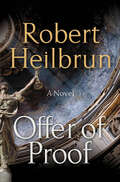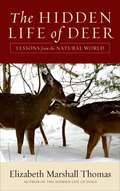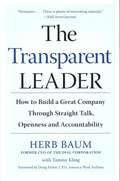- Table View
- List View
FairTax: Answering the Critics
by Neal Boortz John Linder Rob WoodallThe author of the #1 New York Times bestseller The FairTax Book offers a new look at the fast-growing populist tax reform movement that’s poised to become a key campaign issue for 2008In 2005, firebrand radio talk show host Neal Boortz and Georgia congressman John Linder teamed up to create The FairTax Book, the first book devoted to the FairTax movement they had been promoting for years. Riding the growing groundswell of popular support for the tax reform measure, The FairTax Book became an overnight sensation. As the election season heats up, Boortz and Linder return to add fuel to the fire with this radical follow-up. Talking back to the critics who have grossly misrepresented the simple principles behind the tax reform measure—which would abolish the IRS and replace it with a 23 percent retail sales tax on all new goods and services—Boortz and Linder: • Debunk myths about the tax and answer critical charges—that it would bankrupt the economy, that it would leave poor people in the lurch, that the math doesn’t work• Offer new insights into aspects of the plan not originally covered • Show the American voter that there’s still hope of replacing our currently outdated, corrupt,and punitive income tax system with a simple plan that will revolutionize the way American pays for itself.
Groundwork of the Metaphysic of Morals (Harper Perennial Modern Thought Ser.)
by Immanuel KantThe finest single-volume introduction to Kant's ethics available in English. —Philosophical Review, on the H. J. Paton translation Considered one of the most profound, influential, and important works of world philosophy, Groundwork of the Metaphysic of Morals introduces his famous Categorical Imperative and lays down a foundation for all of Immanuel Kant's writings. In it, Kant illuminates the basic concept that is central to his moral philosophy and, in fact, to the entire field of modern ethical thought: The Categorical Imperative, the supreme principle of morality, stating that all decisions should be made based on what is universally acceptable. Featuring the renowned translation and commentary of Oxford's H. J. Paton, this volume has long been considered the definitive English edition of Kant's classic text. "Kant's Groundwork of the Metaphysic of Morals," Paton writes in his preface, "is one of the small books which is truly great: it has exercised on human thought an influence almost ludicrously disproportionate to its size."
My Life Among the Serial Killers: Inside the Minds of the World's Most Notorious Murderers
by Helen Morrison Harold GoldbergIn this memoir, a forensic psychiatrist chronicles her work with more than 80 serial killers and her thoughts on what compels them.Judging by appearances, Dr. Helen Morrison has an ordinary life in the suburbs of a major city. She has a physician husband, two children, and a thriving psychiatric clinic. But her life is more than that. She is one of the world’s leading experts on serial killers, and has spent as many as four hundred hours alone in rooms with depraved murderers, digging deep into killers’ psyches in ways no profiler ever has before.In My Life among the Serial Killers, Dr. Morrison relates how she profiled the Mad Biter, Richard Otto Macek, who chewed on his victims’ body parts, stalked Dr. Morrison, then believed she was his wife. She did the last interview with Ed Gein, who was the inspiration for Alfred Hitchcock's Psycho. John Wayne Gacy, the clown-obsessed killer of young men, sent her crazed Christmas cards and gave her his paintings as presents. Then there was Atlanta child killer Wayne Williams; rapist turned murderer Bobby Joe Long; Fred and Rosemary West, who killed girls and women in their Gloucester “House of Horrors”; and Brazil’s deadliest killer of children, Marcelo Costa de Andrade.Dr. Morrison has received hundreds of letters from killers, read their diaries and journals, evaluated crime scenes, testified at their trials, and studied photos of the gruesome carnage. She has interviewed the families of the victims—and the spouses and parents of the killers—to gain a deeper understanding of the killer’s environment and the public persona they adopt. She has also studied serial killers throughout history and shows how this is not a recent phenomenon with psychological autopsies of the fifteenth-century French war hero Gilles de Rais, the sixteenth-century Hungarian Countess Bathory, H.H. Holmes of the late nineteenth-century, and Albert Fish of the Roaring Twenties.Through it all, Dr. Morrison’s goal has been to discover the reasons serial killers are compelled to murder, how they choose their victims, and what we can do to prevent their crimes in the future. Her provocative conclusions will stun you.Praise for My Life Among the Serial Killers“A scary piece of work, with even scarier implications.” —Kirkus Reviews“A profoundly enlightening book. Morrison provides startling insights into what factors breed serial killers, and she avoids the broad generalizations that make other books of the topic seem slick and superficial. . . . This is an absorbing, disturbing book that makes it clear just how much we have yet to learn.” —Booklist
Missing Witness: A Novel
by Gordon Campbell1973, Phoenix, Arizona. A beautiful woman with a gun enters a house with her twelve-year-old daughter. When they leave, the man inside is dead.Though the only witness to the fatal shooting is in a catatonic state and unable to testify, the police, the attorney general's office, and the media have already declared the woman guilty. But the best trial lawyer in Phoenix, Dan Morgan, has been hired to prove her innocent.For Morgan and his idealistic young protégé, Doug McKenzie, the goal is to win at any cost. But there are no easy answers, only shocks and mysteries, as the question of guilt versus innocence takes on a profound and disturbing new meaning.
All the Centurions: The Real "Prince of the City" Tells His Story
by Robert LeuciThe bestselling book and acclaimed film Prince of the City told only part of Robert Leuci's story. In All the Centurions, he shares the full account of his years as a narcotics detective with the New York Police Department -- a tale of daring adventure, shattered illusions, and finally, astonishing spiritual growth.Leuci reminisces about cops both celebrated and notorious, like Frank Serpico, Sonny Grosso, and Frank King from the French Connection case. Also here are politicians, Mafia figures, corrupt defense lawyers, and district attorneys, including a young Rudolph Giuliani. Leuci reveals the dark side of the criminal justice system: the bitterness, greed, cruelty, and ambition that eventually overflowed into the streets, precinct houses, and courtrooms of the city.As vivid and entertaining as the best crime novels, All the Centurions is the story of a man descending into a hell of his own making who ultimately finds his way out through truth and justice.
Me Tanner, You Jane (Evan Tanner)
by Lawrence BlockIt's a jungle out there.Literally. At least for Evan Tanner, eternally sleepless sometime superspy, who finds himself in Africa on the trail of the AWOL ruler of tiny Modonoland. It seems the petty despot's gone missing, and he's taken the state treasury along with him.No stranger to impossible missions and international peril, Tanner's been in over his head before. This time, however, he's in imminent danger of being buried alive. And it all has to do with the CIA, white supremacists, moderate revolutionaries . . . and a blond jungle bombshell named (no joke!) Sheena. Tanner's always been a sucker for a pretty face and a curvaceous body, especially one that's wrapped in leopard skin. But this red hot renegade daughter of a local missionary is a maneater.Which means this time Tanner's goose is well and truly cooked.
Beyond the Body Farm: A Legendary Bone Detective Explores Murders, Mysteries, and the Revolution in Forensic Science
by Bill Bass Jon JeffersonAn “excellent” collection of case studies and stories from the forensic anthropologist who founded Tennessee’s “Body Farm” (Charleston Post & Courier).A pioneer in forensic anthropology, Bill Bass created the world’s first laboratory dedicated to the study of human decomposition—three acres on a Tennessee hillside where human bodies are left to the elements. His research at the Body Farm has revolutionized the field, helping crack cold cases and pinpoint time of death. But during a forensics career that spans half a century, Bass’s work has ranged far beyond the gates of the Body Farm. In this riveting book, the bone sleuth explores the rise of modern forensic science, using fascinating cases he’s worked on to take readers into the real world of C.S.I.Some cases rely on the simplest of tools and techniques, such as reassembling—from battered torsos and a stack of severed limbs—eleven people hurled skyward by an explosion at an illegal fireworks factory. Other cases hinge on sophisticated techniques Bass couldn’t have imagined when he began his career: harnessing scanning electron microscopy to detect trace elements in knife wounds, or extracting DNA from a long-buried corpse, only to find that the murder victim may have been mistakenly identified a quarter-century before.Beyond the Body Farm follows Bass as he explores the depths of a lake with a twenty-first-century sonar system in search of an airplane that vanished thirty-five years ago; exhumes a fifties pop star to determine what injuries he suffered in the plane crash that killed three rock and roll legends; and works to decipher an ancient Persian death scene. Witty and engaging, Bass dissects the methods used by homicide investigators every day on an extraordinary journey into the high-tech science that it takes to crack a case.“Case studies and anecdotes from the field of corpse identification [with] careful attention to detail and the occasional darkly humorous aside.” —Publishers Weekly“The real crimes and mysteries here are just as or more intriguing than any fictional crime drama . . . offers a real-life understanding of forensic anthropology and the science behind it.” —Knoxville News-Sentinel
Frost/Nixon: Behind the Scenes of the Nixon Interviews
by David Frost Bob ZelnickThe British journalist recounts his 1977 interview with the disgraced American president—the basis for the Tony Award–winning play & Oscar-nominated film.In Frost/Nixon, Sir David Frost tells the extraordinary story of how he pursued and landed the biggest fish of his career—and how the series drew larger audiences than any news interview ever had in the United States, before being shown all over the world.This is Frost’s absorbing story of his pursuit of Richard Nixon, and is no less revealing of his own toughness and pertinacity than of the ex-President’s elusiveness. Frost’s encounters with such figures as Swifty Lazar, Ron Ziegler, potential sponsors, and Nixon as negotiator are nothing short of hilarious, and his insight into the taping of the programs themselves is fascinating.Frost/Nixon provides the authoritative account of the only public trial that Nixon would ever have, and a revelation of the man’s character as it appeared in the stress of eleven grueling sessions before the cameras. Including historical perspective and transcripts of the edited interviews, this is the story of Sir David Frost’s quest to produce one of the most dramatic pieces of television ever broadcast, described by commentators at the time as “a catharsis” for the American people.
Civil Rights: Rhetoric or Reality
by Thomas SowellIt is now more than three decades since the historic Supreme Court decision on desegregation, Brown v. Board of Education. Thomas Sowell takes a tough, factual look at what has actually happened over these decades -- as distinguished from the hopes with which they began or the rhetoric with which they continue, Who has gained and who has lost? Which of the assumptions behind the civil rights revolution have stood the test of time and which have proven to be mistaken or even catastrophic to those who were supposed to be helped?
The Master of Disguise: My Secret Life in the CIA
by Antonio J. Mendez Malcolm McConnellThe award-winning spy and author of the New York Times bestseller Argo recounts his service with the CIA during the Cold War.On the fiftieth anniversary of the CIA, Antonio J. Mendez was named one of the fifty all-time stars of the spy trade, and he was granted exclusive permission to tell his fascinating story—all of it.For the first time, the CIA has authorized a top-level operative to tell all in an unforgettable behind-the-scenes look at espionage in action. An undisputed genius who could create an entirely new identity for anybody, anywhere, anytime, Antonio J. Mendez combined the cunning tricks of a magician with the analytic insight of a psychologist to help hundreds of people escape potentially fatal situations. From “Wild West” adventures in East Asia to Cold War intrigue in Moscow and helping six Americans escape revolutionary Tehran in 1980, Mendez was on the scene. Here he gives us a privileged look at what really happens in the field and behind closed doors at the highest levels of international espionage, some of it shocking, frightening, and wildly inventive—all of it unforgettable.
Meant To Be: A Memoir
by Walter AndersonPublished to strong reviews and major media attention, this heartfelt and inspirational rags-to-riches memoir by the highly regarded CEO of Parade Publications tells the emotional story of how he came to terms with an identity and a family that he never knew he had until he reached middle age.Meant To Be begins when Anderson, a 21-year-old Marine returns from service to say goodbye to his dying father and tries to find the answer to a question that has inexplicably haunted him from his earliest years: Was the alcoholic, abusive man who has so tormented him in his childhood his real father? Shockingly, the answer turns out to be "No." Unbeknown to him, at least until that point, his mother, a German Protestant, fell in love during World War II with a Russian Jew and bore his child. Anderson learns this information as a young man but he and his mother keep this secret for another 35 years, until the day Anderson—now an unusually successful publishing executive—meets an unknown brother who, it turns out, has lived a nearly parallel life. Meant To Be is a love story, a journey of self-discovery and spirituality, and a provocative challenge to common notions about the role of heredity in our lives.
The Cell Game: Sam Waksal's Fast Money and False Promises—and the Fate of ImClone's Cancer Drug
by Alex Prud'hommeThe “chilling tale” of ImClone Systems, its promising cancer drug, Erbitux, and the insider trading scandal that ensnared Martha Stewart (U.S. News & World Report).The Cell Game is the quintessential business saga of the late 1990s. It's the story of big money and cutting-edge science, celebrity, greed, and slipshod business practices; the story of biotech hype and hope and every kind of excess.At the center of it all stands a single, enigmatic figure named Sam Waksal. A brilliant, mercurial, and desperate-to-be-liked entrepreneur, Waksal was addicted to the trappings of wealth and fame that accrued to a darling of the stock market and the overheated atmosphere of biotech IPOs. At the height of his stardom, Waksal hobnobbed with Martha Stewart in New York and Carl Icahn in the Hamptons, hosted parties at his fabulous art-filled loft, and was a fixture in the gossip columns. He promised that Erbitux would "change oncology," and would soon be making $1 billion a year.But as Waksal partied late into the night, desperate cancer patients languished, waiting for his drug to come to market. When the FDA withheld approval of Erbitux, the charming scientist who had always stayed just one step ahead of bankruptcy panicked and desperately tried to cash in his stock before the bad news hit Wall Street.Waksal served time in prison, the first of the Enron-era white-collar criminals to be sentenced. Yet his cancer drug has proved more durable than his evanescent profits.“A fast-paced, absorbing, and dramatic account . . . An important, excellent book that makes for fascinating reading.” —Library Journal
Digital Barbarism
by Mark HelprinWorld-renowned novelist Mark Helprin offers a ringing Jeffersonian defense of private property in the age of digital culture, with its degradation of thought and language, and collectivist bias against the rights of individual creators. Mark Helprin anticipated that his 2007 New York Times op-ed piece about the extension of the term of copyright would be received quietly, if not altogether overlooked. Within a week, the article had accumulated 750,000 angry comments. He was shocked by the breathtaking sense of entitlement demonstrated by the commenters, and appalled by the breadth, speed, and illogic of their responses. Helprin realized how drastically different this generation is from those before it. The Creative Commons movement and the copyright abolitionists, like the rest of their generation, were educated with a modern bias toward collaboration, which has led them to denigrate individual efforts and in turn fueled their sense of entitlement to the fruits of other people's labors. More important, their selfish desire to "stick it" to the greedy corporate interests who control the production and distribution of intellectual property undermines not just the possibility of an independent literary culture but threatens the future of civilization itself.
Fateful Harvest: The True Story of a Small Town, a Global Industry, and a Toxic Secret
by Duff WilsonI see soil in a new light, and I wonder about my own lawn and garden. What have I sprinkled on my backyard? Is somebody using my home, my food, to recycle toxic waste? It seems unbelievable, outlandish -- but what if it's true?A riveting expose, Fateful Harvest tells the story of Patty Martin -- the mayor of a small Washington town called Quincy -- who discovers American industries are dumping toxic waste into farmers' fields and home gardens by labeling it "fertilizer." She becomes outraged at the failed crops, sick horses, and rare diseases in her town, as well as the threats to her children's health. Yet, when she blows the whistle on a nationwide problem, Patty Martin is nearly run out of town.Duff Wilson, whose Seattle Times series on this story was a finalist for the Pulitzer Prize, provides the definitive account of a new and alarming environmental scandal. Fateful Harvest is a gripping study of corruption and courage, of recklessness and reckoning. It is a story that speaks to the greatest fears -- and ultimate hope -- in us all.
Money-Driven Medicine: The Real Reason Health Care Costs So Much
by Maggie MaharWhy is medical care in the United States so expensive? For decades, Americans have taken it as a matter of faith that we spend more because we have the best health care system in the world. But as costs levitate, that argument becomes more difficult to make. Today, we spend twice as much as Japan on health care—yet few would argue that our health care system is twice as good.Instead, startling new evidence suggests that one out of every three of our health care dollars is squandered on unnecessary or redundant tests; unproven, sometimes unwanted procedures; and overpriced drugs and devices that, too often, are no better than the less expensive products they have replaced.How did this happen? In Money-Driven Medicine, Maggie Mahar takes the reader behind the scenes of a $2 trillion industry to witness how billions of dollars are wasted in a Hobbesian marketplace that pits the industry's players against each other. In remarkably candid interviews, doctors, hospital administrators, patients, health care economists, corporate executives, and Wall Street analysts describe a war of "all against all" that can turn physicians, hospitals, insurers, drugmakers, and device makers into blood rivals. Rather than collaborating, doctors and hospitals compete. Rather than sharing knowledge, drugmakers and device makers divide value. Rather than thinking about long-term collective goals, the imperatives of an impatient marketplace force health care providers to focus on short-term fiscal imperatives. And so investments in untested bleeding-edge medical technologies crowd out investments in information technology that might, in the long run, not only reduce errors but contain costs.In theory, free market competition should tame health care inflation. In fact, Mahar demonstrates, when it comes to medicine, the traditional laws of supply and demand do not apply. Normally, when supply expands, prices fall. But in the health care industry, as the number and variety of drugs, devices, and treatments multiplies, demand rises to absorb the excess, and prices climb. Meanwhile, the perverse incentives of a fee-for-service system reward health care providers for doing more, not less.In this superbly written book, Mahar shows why doctors must take responsibility for the future of our health care industry. Today, she observes, "physicians have been stripped of their standing as professionals: Insurers address them as vendors ('Dear Health Care Provider'), drugmakers and device makers see them as customers (someone you might take to lunch or a strip club), while . . . consumers (aka patients) are encouraged to see their doctors as overpaid retailers. . . . Before patients can reclaim their rightful place as the center—and indeed as the raison d'être—of our health care system," Mahar suggests, "we must once again empower doctors . . . to practice patient-centered medicine—based not on corporate imperatives, doctors' druthers, or even patients' demands," but on the best scientific research available.
Claim of Privilege: A Mysterious Plane Crash, a Landmark Supreme Court Case, and the Rise of State Secrets
by Barry SiegelOn October 6, 1948, a U.S. Air Force B-29 Superfortress crashed soon after takeoff, killing three civilian engineers and six crew members. In June 1949, the engineers' widows filed suit against the government, determined to find out what exactly had happened to their husbands and why the three civilians had been on board the airplane in the first place. But it was the dawn of the Cold War and the Air Force refused to hand over any documents, claiming they contained classified information. The legal battle ultimately reached the Supreme Court, which in 1953 handed down a landmark decision that would, in later years, enable the government to conceal gross negligence and misconduct, block troublesome litigation, and detain criminal suspects without due-process protections.Claim of Privilege is a mesmerizing true account of a shameful incident and its lasting impact on our nation—the gripping story of a courageous fight to right a past wrong and a powerful indictment of governmental abuse in the name of national security.
In Search of Grace: A Journey Across America's Landscape of Faith
by Kristin HahnAfter years as a Hollywood writer and filmmaker, Kristin Hahn felt a crisis of faith: she had no spiritual group she could call her own. Setting out on a three-year journey, she began an investigation of America's religious traditions, practices, and beliefs.Crisscrossing the nation, Hahn spent a week cloistered in prayer with convent nuns and a month of Ramadan fasting with Muslims. She went door-to-door with young Mormon missionaries and head-to-head with turbaned Sikh yogis. She sat through marathon meditations with Buddhist masters and spent days in conversation and ceremony with an 0jibwe medicine man. Her explorations exposed her to the rich, ancient culture of the Jews and brought her into the enclaves of Christian Scientists and Amish farmers, as well as the less traditional realms of Scientology, neopagan witchcraft, and the congregations of new-age gurus.And this was only the beginning.Openhearted, humorous, and always thoughtful, In Search of Grace offers nourishment for our spiritual hunger -- and a myriad of ways to find a religious home.
Sandra Day O'Connor: How the First Woman on the Supreme Court Became Its Most Influential Justice
by Joan Biskupic“Sandra Day O’Connor takes you behind the closed doors of the Supreme Court to reveal how Justice O’Connor helped craft landmark decisions on abortion, affirmative action, and a host of other critical issues. Joan Biskupic has broken new ground in reporting on O’Connor’s life and historic role on the high court. This lively, fast-paced account will make people rethink how they view this extraordinary woman and her fellow justices. An indispensable read for anyone interested in politics, the law, and power as exercised by one of the most fascinating women of our time.” -Andrea MitchellSandra Day O'Connor, America's first woman justice, became the axis on which the Supreme Court turned. She was called the most powerful woman in America, and it was often said that to gauge the direction of American law, one need look only to O'Connor's vote. Then, just one year short of a quarter century on the bench, she surprised her colleagues and the nation by announcing her retirement.Drawing on information from once-private papers of the justices, hundreds of interviews with legal and political insiders, and the insight gained from nearly two decades of covering the Supreme Court, Joan Biskupic examines O'Connor's remarkable career, providing an in-depth account of her transformation from tentative jurist to confident architect of American law. The portrait that emerges is of a complex and multifaceted woman: lawyer, politician, legislator, and justice, as well as wife, mother, A-list society hostess, and competitive athlete. To all appearances, she was the polite lady in pearls, handbag on her arm. But in the back rooms of politics and the law, she was a determined, focused strategist. O'Connor was the feminist who, rather than rebel against the male-dominated system, worked from within -- and succeeded.As Biskupic demonstrates, Justice O'Connor became much more than a "first." During her twenty-four-year tenure, she wrote the decisions on some of the most controversial social battles of our time. O'Connor's tie-breaking opinions on issues such as abortion rights, affirmative action, the death penalty, and religious freedom will have a lasting effect far into the future. O'Connor also cast one of the five votes that cut off the Florida recounts and allowed George W. Bush to take the White House in the 2000 contested presidential election. With an eye to the American people and a keen sense of public attitudes, she worked behind the scenes to shape the law and transform the legal standards by which future cases will be decided.From O'Connor's isolated upbringing on the Lazy B ranch in Arizona through her time as a state legislator to her rise as a justice -- along the way confronting her own personal challenges and crises, including breast cancer -- Biskupic presents a vivid, astute depiction of the justice -- and of the woman beneath the black robe. In so doing, Sandra Day O'Connor also provides an unprecedented look inside the exclusive, famously secretive High Court.
Burn This Book: Notes on Literature and Engagement
by Toni MorrisonPublished in conjunction with the PEN American Center, Burn This Book is a powerful collection of essays that explore the meaning of censorship and the power of literature to inform the way we see the world, and ourselves.As Americans we often take our freedom of speech for granted. When we talk about censorship we talk about China, the former Soviet Union, or the Middle East. But recent political developments—including the passage of the Patriot Act—have shined a spotlight on profound acts of censorship in our own backyard. Burn This Book features a sterling roster of award-winning writers offering their incisive, uncensored views on this most essential topic, including such revered literary heavyweights as Toni Morrison, Salman Rushdie, Orhan Pamuk, David Grossman, and Nadine Gordimer, among others.Both provocative and timely, Burn This Book is certain to inspire strong opinions and ignite spirited, serious dialogue.
It's Our Turn to Eat: The Story of a Kenyan Whistle-Blower
by Michela WrongThe true story of one man&’s fight against corruption: "like a John Le Carré novel&” that shows &“how and why Kenya descended into political violence&” (Washington Post). In January 2003, Kenya was hailed as a model of democracy after the peaceful election of President Mwai Kibaki. By appointing respected longtime reformer John Githongo as anticorruption czar, the new Kikuyu government signaled its determination to end the shady practices that had tainted the previous regime. Yet only two years later, Githongo himself was on the run, having secretly compiled evidence of official malfeasance throughout the new administration. Unable to remain silent, Githongo, at great personal risk, made the painful choice to go public. The result was a Kenyan Watergate. Michela Wrong&’s account of how a pillar of the establishment turned whistle-blower—instantly becoming one of the most hated and admired men in Kenya—grips like a political thriller while probing the very roots of the nation&’s predicament.&“A fast-paced political thriller. . . . Wrong&’s gripping, thoughtful book stands as both a tribute to Githongo&’s courage and a cautionary tale.&” —New York Times Book Review
Knowing Christ Today: Why We Can Trust Spiritual Knowledge
by Dallas WillardAt a time when popular atheism books are talking about the irrationality of believing in God, Willard makes a rigorous intellectual case for why it makes sense to believe in God and in Jesus, the Son.
The Fence: A Police Cover-up Along Boston's Racial Divide
by Dick Lehr“A monumental account of an urban travesty….[It] has all the earmarks of a classic.”—Dennis Lehane, New York Times bestselling author of Mystic River and Shutter IslandDick Lehr’s The Fence, subtitled, “A Police Cover-up Along Boston’s Racial Divide,” is a shocking true story of racism, brutality, official lies and negligence, when the truth about the savage beating of black plainclothes policeman by white officers was hidden behind a “blue wall of silence.” Respected journalist Lehr, winner of the Hancock Award, the Loeb Award, finalist for the Pulitzer Prize, and bestselling author of Black Mass and Judgment Ridge, sheds a brilliant light on all aspects of this powerful, disturbing event and its aftermath.
Offer of Proof: A Novel
by Robert HeilbrunA riveting thriller, the debut novel of a high–profile Manhattan public defender with a gift for writing about the law in ways that are vastly entertaining, witty, sardonic and wise.A beautiful young businesswoman is murdered on the streets of New York after shopping for art in Chelsea, and in her final words to the police, she identifies her assailant. Or does she?Arch Gold, dedicated public defender, gets the biggest case of his life when he's assigned to represent the accused killer, Damon Tucker, a young black kid from Harlem. Damon claims he's innocent, and Gold puts his reputation on the line to save his client and find the real killer.
The Hidden Life of Deer: Lessons from the Natural World
by Elizabeth Marshall ThomasThe animal kingdom operates by ancient rules, and the deer in our woods and backyards can teach us many of them—but only if we take the time to notice.In the fall of 2007 in southern New Hampshire, the acorn crop failed and the animals who depended on it faced starvation. Elizabeth Marshall Thomas began leaving food in small piles around her farmhouse. Soon she had over thirty deer coming to her fields, and her naturalist's eye was riveted. How did they know when to come, all together, and why did they sometimes cooperate, sometimes compete? Throughout the next twelve months she observed the local deer families as they fought through a rough winter; bred fawns in the spring; fended off coyotes, a bobcat, a bear, and plenty of hunters; and made it to the next fall when the acorn crop was back to normal. As she hiked through her woods, spotting tree rubbings, deer beds, and deer yards, she discovered a vast hidden world. Deer families are run by their mothers. Local families arrange into a hierarchy. They adopt orphans; they occasionally reject a child; they use complex warnings to signal danger; they mark their territories; they master local microclimates to choose their beds; they send countless coded messages that we can read, if only we know what to look for.Just as she did in her beloved books The Hidden Life of Dogs and Tribe of Tiger, Thomas describes a network of rules that have allowed earth's species to coexist for millions of years. Most of us have lost touch with these rules, yet they are a deep part of us, from our ancient evolutionary past. The Hidden Life of Deer is a narrative masterpiece and a naturalist's delight.
The Transparent Leader
by Herb Baum Tammy KlingDrawing on his experience as a leader in some of the nation's largest corporations, Baum issues a convincing call for honest, ethical, "transparent" dealing throughout the business world. Baum outlines the management techniques he uses within and without the company to get outstanding results without skirting the rules or bending the truth. Baum maintains that by fostering trust, integrity and accountability at all levels within the corporation, managers can stop the erosion of employee loyalty, restore consumer trust in brands, products, and American business. Baum teaches executives fresh ways of managing Wall Street analysts, communicating with shareholders, and wading through the complex maze of social responsibility issues. As a member of six corporate boards, Baum offers unique insight into transparent leadership, including the advantages and pitfalls of corporate governance, and the pressures executives face in reporting earnings. He also discusses the importance of setting standards for ethical business practices, yet highlights the dangers of government regulations that may result in excessive compliance costs at the expense of shareholders, creative risk taking, and innovation.
